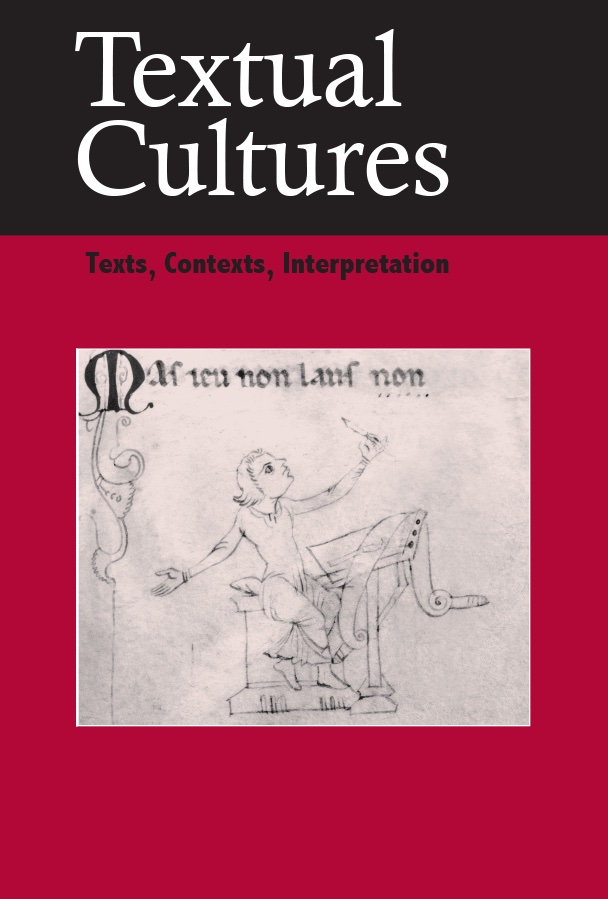A Rationale of Trans-inclusive Bibliography
Main Article Content
Abstract
This article posits a framework for the principles and practices of trans-inclusive bibliography, describing its necessity and challenges, considering historical analogues, and offering solutions for trans-inclusive bibliography in digital contexts. Proper names are the primary way that a person is credited with their scholarly labor, yet using names raises ethical issues. Trans-inclusive bibliography shares many of the same ethical concerns and strategies as trans-inclusive citation practices, but differs in terms of scale and stakes. Given that exhaustive enumerative bibliographies are often used to create individual works cited lists, their choices and practices can reverberate through an entire academic field. This article centers on enumerative bibliography, particularly the challenges and potential solutions for the World Shakespeare Bibliography. Trans-inclusive bibliography requires accepting bibliography's flexibility and contingency, relinquishing comforting myths about the stability of the historical record. We outline the ethical core of trans-inclusive bibliography and offer practicable scholarly habits to implement it.
Downloads
Article Details
Authors who publish with this journal agree to the following terms:
- Authors retain copyright and grant the journal right of first publication with the work simultaneously licensed under a Creative Commons Attribution License (see:http://creativecommons.org/licenses/by/3.0/us/) that allows others to share the work with an acknowledgment of the work's authorship and initial publication in this journal.
- Authors warrant that their submission is their own original work, and that they have the right to grant the rights contained in this license. Authors also warrant that their submission does not, to the best of your knowledge, infringe upon anyone's copyright. If the submission contains material for which an author does not hold the copyright, authors warrant that they have obtained the unrestricted permission of the copyright owner to grant Indiana University the rights required by this license, and that such third-party owned material is clearly identified and acknowledged within the text or content of their submission.
- Authors are able to enter into separate, additional contractual arrangements for the non-exclusive distribution of the journal's published version of the work (e.g., post it to an institutional repository or publish it in a book), with an acknowledgment of its initial publication in this journal.
